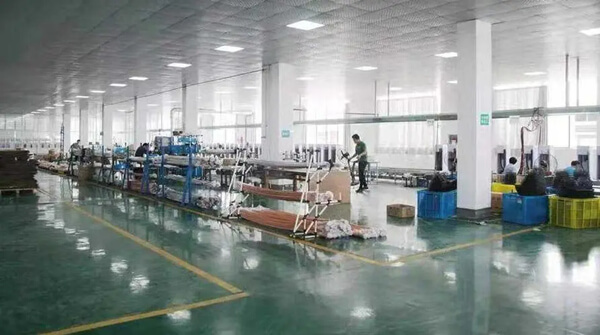
A Comparison of Common Factory Audit Standards for Lingerie Manufacturing
Lingerie manufacturing factories are required to comply with various social compliance standards to ensure workers' fair and safe treatment, as well as the ethical and sustainable production of garments. The most common social compliance standards used in the lingerie industry are:
Business Social Compliance Initiative (BSCI):
BSCI is an initiative launched by the Foreign Trade Association (FTA) to improve working conditions in global supply chains. The BSCI code of conduct covers child labor, forced labor, health and safety, freedom of association, and discrimination.
Ethical Trading Initiative (ETI)
ETI is an alliance of companies, trade unions, and NGOs that promotes respect for workers' rights worldwide. The ETI base code covers issues such as employment being freely chosen, working conditions being safe and hygienic, child labor shall not be used, and living wages being paid.
Worldwide Responsible Accredited Production (WRAP)
WRAP is a non-profit organization promoting ethical and sustainable manufacturing practices worldwide. The WRAP certification program covers human resources management, health and safety, environmental management, and legal compliance.
Social Accountability International (SAI)
SAI is a non-profit organization dedicated to promoting human rights in the workplace. The SAI SA8000 standard covers child labor, forced labor, health and safety, freedom of association, and discrimination.
Supplier Ethical Data Exchange (SEDEX)
SEDEX is a membership organization for businesses committed to continuously improving ethical performance within their supply chains. The SEDEX Members Ethical Trade Audit (SMETA) covers labor standards, health and safety, environmental management, and business ethics issues.
It's worth noting that while these standards share many similarities, they also have some differences in their approach and specific requirements. Therefore, it's essential for lingerie manufacturers to carefully evaluate and select the social compliance standard(s) that best fit their needs and values.
To help with the decision-making process, the following table provides a brief comparison of some key features of the five social compliance standards discussed above:
| Standard | Organization | Scope | Key Features |
|---|---|---|---|
| BSCI | FTA | Global supply chains | Covers child labor, forced labor, health & safety |
| ETI | ETI | Worldwide | Covers freely chosen employment, living wages |
| WRAP | WRAP | Global | Covers HR management, health & safety, legal comp |
| SAI SA8000 | SAI | Worldwide | Covers child labor, forced labor, freedom assoc |
| SEDEX SMETA | SEDEX | Global supply chains | Covers labor standards, health & safety, ethics |
